All about the profession of a cook
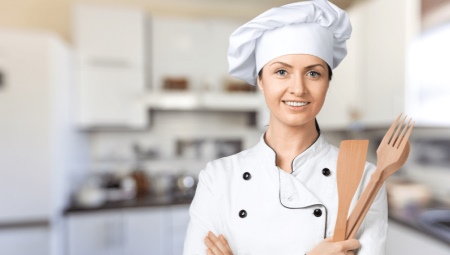
A cook is an important and necessary profession, which cannot be dispensed with in modern society. In addition, the work of these specialists is very interesting and creative, which is why many young people dream of becoming high-level chefs.
What are the features of the cooking profession? What are the advantages and disadvantages of a cook's work? What specializations are there? What requirements do you need to meet in order to get the desired position? We will talk more about this in our article.
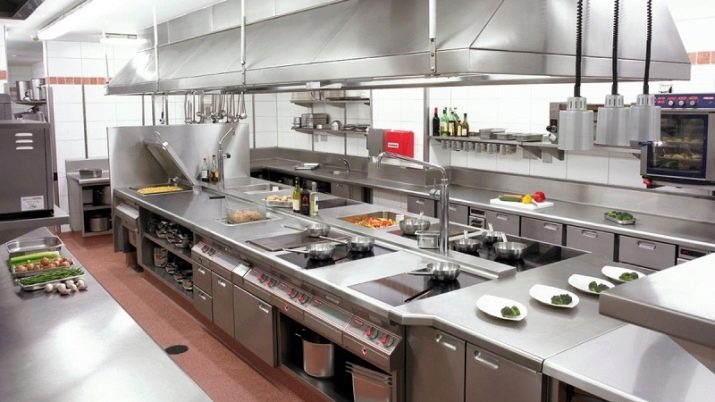
History and description of the profession
The cooking craft has rather ancient roots. So, it is believed that it arose earlier than pottery and blacksmithing. The origin of the profession is directly related to the practical activities and daily life of ancient people. For example, after primitive people learned to use fire, they noticed that food cooked on fire is much tastier than raw, and can also be stored longer.
However, not everyone was able to master the cooking process: some representatives of primitive society did it better than others. In this regard, a certain division of labor took place, and among the entire tribe those people were singled out who cooked the best. If we talk about the first written mention of the profession of a cook, then you should pay attention to a document dated 2000 BC. This document described people who, as their professional activities, were engaged in preparing food for the Cretan army.
Today, working as a cook is a complex professional activity. A specialist in this industry solves a number of tasks and performs a wide range of functions. Throughout the history of mankind, the profession of a cook has evolved and changed. Today, high-class chefs are considered to be those who have mastered a large number of cooking techniques, know the rules for combining products and have a whole range of other professional knowledge, skills and abilities.
At the same time, it is quite difficult to reach such a level, therefore, only a few dozen skilled chefs are known at the world level.
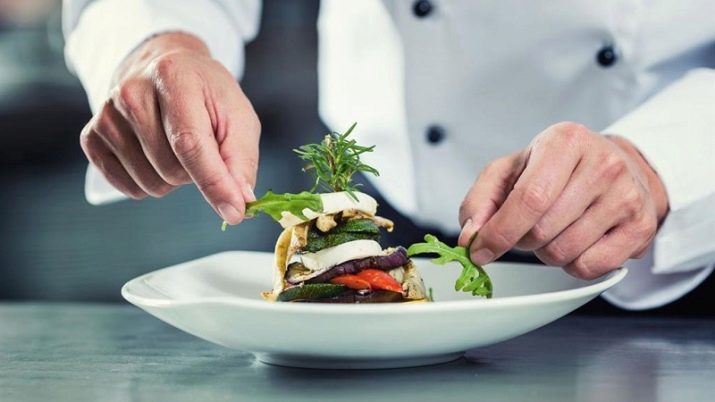
Advantages and disadvantages
In recent years, a large number of programs and films have appeared on television that popularize the profession of a cook. In this regard, many young people turned their attention to this activity. However, before you finally decide to link your destiny with a culinary career, it is very important to understand that such an activity is characterized not only by positive features, but also has a number of significant drawbacks. Accordingly, it is necessary to assess in advance all the pros and cons.
Let's take a closer look at the benefits of being a chef that makes it so popular.
- High level of demand... Regardless of the economic state of the country, the political situation, as well as the social function of the state, the profession of a cook will always be in demand. The thing is that these specialists ensure the satisfaction of basic human needs, namely: the need for food.
- Career options... A chef is a specialist who can choose any career in his culinary field. For example, some specialists open their own restaurants, others write books and host their own talk shows. And also, if you wish, you can remain an employee and serve in a regular restaurant or cafe.
- Creative component... In order to become a successful chef, you need to have a creative and creative mind, not be afraid to show your originality and make experiments.
- Independence from the region of residence. In our society, it is generally accepted that in order to achieve success in a creative career, it is necessary to live in a big city or capital city. In some cases, this statement is justified. At the same time, this principle does not work for chefs. Culinary experts are needed both in big cities and in provinces or even in villages. They do not necessarily work in expensive luxury restaurants - chefs may work in school and hospital canteens, in factories, and so on. After we have appreciated all the main advantages of the profession of a cook, we will proceed to the analysis of the disadvantages of such work.
- Physical endurance. A cook's working day can last for long hours. Often times, the working hours and hours do not correspond to the generally accepted 8-hour working day. Accordingly, cooks in the kitchen can work for 12 or even 14 hours. At the same time, the working conditions in the kitchen are quite dangerous (vapors, high temperatures, and much more). At the same time, the cook often has to be responsible not only for his own work, but also for the activities of his subordinates (for example, cook assistants). To perform all these functions at a high professional level, you need to have a fairly large physical endurance, as well as good health.
- High stress levels. In their daily activities, chefs often encounter incompetence of subordinates, dissatisfaction with customers, as well as exaggerated demands from their superiors. In this regard, it is very important to be a calm and stress-resistant person, to be able to avoid conflicts and resolve any situation constructively, while maintaining your professional reputation.
- Low wages... Cooks (especially novice specialists) receive a rather modest remuneration for their work. High fees are available only to well-known and highly qualified specialists.
It can be concluded that the work of a cook is fraught with a lot of difficulties. In this regard, it is important at the initial stage to soberly and objectively assess your capabilities, and also determine whether you can devote yourself to culinary activities 100%.


Specializations and directions
Today, in the professional community of chefs, several types of work and specialties can be distinguished: for example, a chef can work on a distribution line, specialize in Japanese cuisine, or work as a preparation cook.
Let's consider the most popular classification of the professional cook's activity.
- Chef. This specialist is the main one in the kitchen, therefore, all other workers must follow his instructions. The chef is not only engaged in the direct preparation of dishes, but also forms the menu, studies the client base, monitors the work of the rest of the kitchen staff and performs a number of additional functions, without which the full-fledged work of the kitchen is impossible.
- Confectioner. This specialist is engaged in the production of confectionery and must deeply know all the features of such a culinary activity.
- Technologist. This employee organizes and monitors the cooking process, adherence to techniques and methods. It also calculates the quantity of products required to order.
At the same time, there are other, more highly specialized specialists, for example, chefs who specialize in national cuisine.

Requirements
In order to get a job as a cook, you need to meet the professional requirements of the employer, as well as have good personal qualities.
Personal
The chef must have the following characteristics:
- stress tolerance;
- ability to work in stressful situations;
- flexibility of thinking;
- energy;
- the ability to improvise;
- tact;
- leadership qualities and others.
Remember that you are not only a professional in your field, but also a member of the team.
Professional
Among the necessary professional skills are:
- olfactory sensitivity;
- knowledge of cooking technology;
- the ability to combine products and much more.
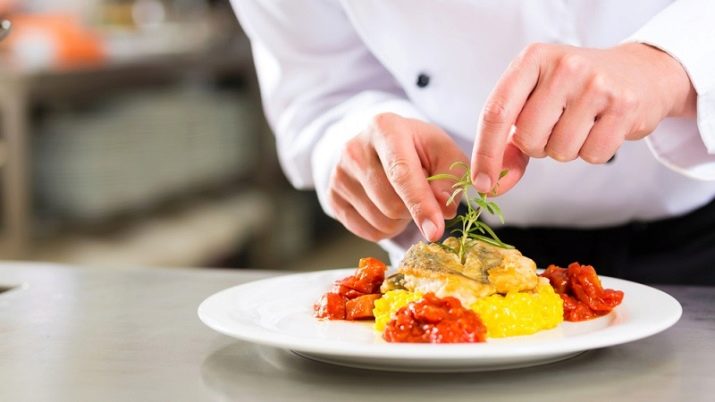
Job responsibilities
The duties of a cook are detailed in the instructions that the employer will provide you when applying for a position. Depending on the specific place of work, your work tasks may differ, however, almost any job description contains the following points:
- knowledge of safety precautions;
- ordering and receiving the products necessary for cooking from the menu;
- adherence to the methodology of cooking;
- cooking food;
- using the necessary kitchen equipment;
- control over sanitary and hygienic conditions.
Education
Depending on the specific place of employment, the employer may require applicants to have a different degree of education, for example, higher education and a university diploma or secondary vocational education and a document from a technical school or college. One way or another, but in order to take the position of a cook in an institution, you need to meet the mandatory professional standard, which means you need to have the appropriate training.
It should also be noted that more employers pay attention to the educational institution you graduated from. That's why upon admission, you must be very careful about the choice.
It is also important to find out in advance what subjects and disciplines you need to take (for example, chemistry, mathematics, etc.), then start preparing for the exams.
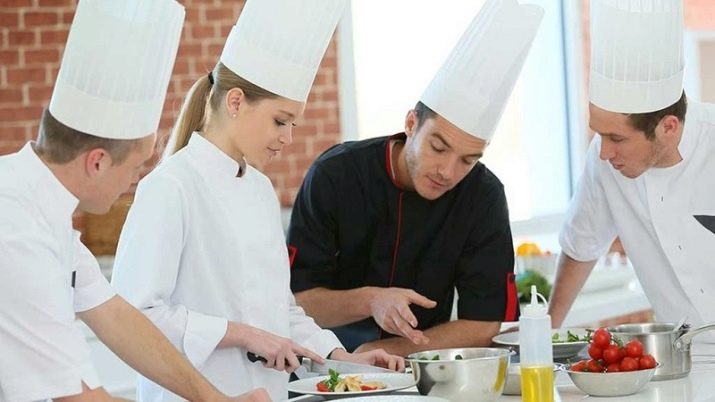
average salary
A chef's salary depends on a large number of factors. For example, work experience, professional skills, region of residence, class of organization (for example, in a restaurant a chef will receive much more than in a canteen), employer opportunities are taken into account.
At the same time, if we give the average statistics for our country, we can conclude that the minimum chefs receive 20,000 rubles. At the same time, the maximum figure is not announced or published, since eminent chefs, known all over the world, can receive material rewards in excess of 100,000 rubles.
Where to work?
The career path of a professional chef can develop in a variety of ways, since a culinary specialist can choose any jobs and organizations for his activities:
- canteen in kindergarten, school, college, institute, university or any other educational institution;
- a restaurant - it can be a small family business, a network organization or an exclusive luxury restaurant;
- office - very often large companies equip an office for their employees with a kind of canteen or buffet;
- a cafe;
- bakery or bakery - these places of work are especially relevant for confectioners;
- fast food - most often burgers, shawarma and other similar dishes are prepared here;
- media platforms - publishing training videos, writing books;
- institutions of special education - Chefs very often teach at culinary colleges.
At the same time, it is not necessary to engage in only one of the proposed activities - at will, the chef can combine any work that is interesting for him.
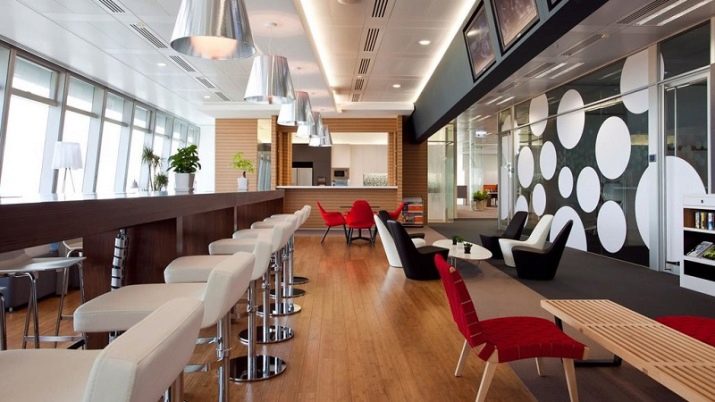
Career prospects
A young chef without work experience and the necessary qualifications, who has just left the walls of an educational institution, can count on the position of an assistant chef in a good prestigious restaurant or a chef position in a small cafe or school cafeteria. Wherein as he gains the necessary experience and practical skills, his position can rise.
For example, a chef who has become a professional quickly moves up the career ladder if he is an employee: for example, he can become a restaurant chef. At the same time, talented culinary specialists quite often give preference to entrepreneurial activity and open their own restaurants. Chefs can also engage in media activities: for example, filming a program for television or writing cookbooks with original recipes.
It can be concluded that the professional activity of a chef can be quite varied and interesting... At the same time, each specialist needs to rely on his professional skills and personal desires.









